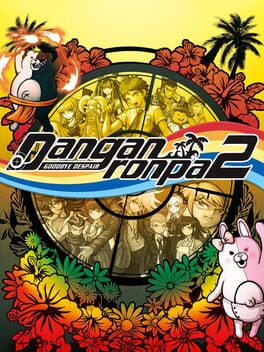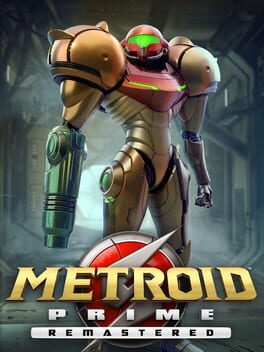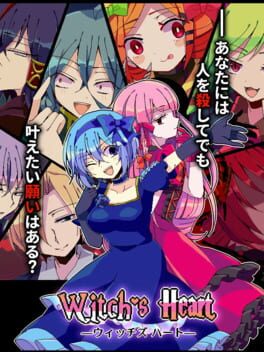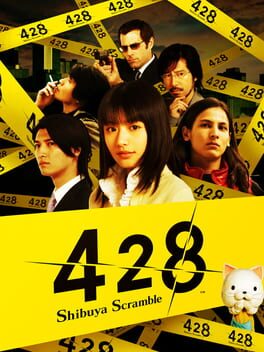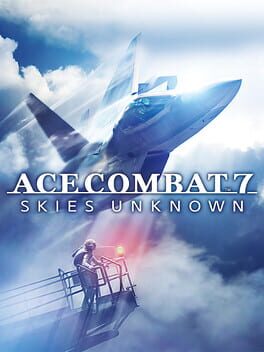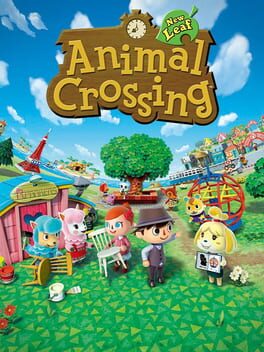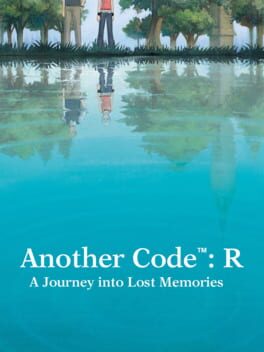Hugh
45 reviews liked by Hugh
This review contains spoilers
It was hard to articulate my exact feelings on the first game. I came out of it liking it well enough, largely from the game's amazing vibes, but its flaws remain glaring, accentuating themselves the farther out from the ending I've gotten. Beyond the whole Chihiro Issue™️, most of it stems from the cast... kind of sucking. It's so damning when you get to the end of a gauntlet of cool reveals and world building, with a strong thematic ending of the Hope's Peak doors opening into an unknown future... And then Hina and Hiro are still talking about eating donuts and reading fortunes: a harsh undercutting of the game really hitting its mark to go back to wallowing in a really shallow stupidity.
It's important to discuss the character issues of the first game, because that's where 2 understands the issues lie too. A lot of basic stuff about the first game is relative unchanged in regard to gameplay and aesthetics (honestly that's where I have a few small issues with 2, with the clusterfuck that is its take on the letter shooting minigame and generally not caring for the faux-retro aesthetics until they bring it home with the ending twist). But still, underneath all of that is an exceptionally strong base that could be build off of a lot more smartly. As such, Danganronpa 2 decides to make the bold decision to, gasp, be a smartly written game this time around!
Its funnier, has more interesting mysteries, better pacIng, and plays off its "dumb" moments a lot better, but most importantly, it knows so perfectly what it wants to be. If the focus of the first game was primarily on the atmosphere of the overtaken Hope's Peak, this game focuses so much more on its characters. The cast is the heart and soul of this game, given so much opportunity to grow and interact and just be human in a way the first game never was. Little stuff like the completely optional remembrance concert Hiyoko sets up in Mahiru's memory add so much and really build up a sense of these characters legitimately caring for each other. This shift in focus permeates through the entire rest of the game, improving basically everything that the first game faltered at.
Most of the murders end up being focused around personal issues versus the fairly shallow motivations of the first game, leaving me so much more emotionally invested in them. The second trial feels like the first time in the series where an emotional moment really lands, and it just kickstarts Fuyuhiko's arc into becoming one of the best characters in the entire game. By the time that case is over, every single character remaining was one I cared about to some extent, making each death feel more gutting than the last. The part where you need to choose the killer becomes so much more impactful when it's bearing the load of "fuck, I don't want any of them to have done it". The game obviously realizes how strong these bonds have become too, with how its final two motivations for murder are basically taken out of the character's hands. When combined with how much more every character is an active part of the trials, filled with moments where they're all actively working together to draw a conclusion, it all just works so well.
My love runs most deeply for the main trio though. It's hard to describe why I love Nagito so much, that freak who made me feel ill (positive) with every other line of dialogue. For being such a chaotic character, it's so interesting to unravel the logic behind him, even after he's died. And Chiaki, who besides just being literally me, managed to make me teary-eyed twice. The one-two punch of Nagito's trap and Chiaki's melancholic confession was such an incredible roller coaster, one of the best ones I've had in a videogame (facing head on with the best Ace Attorney ending cases).
Then there's Hajime Hinata, the protagonist I wasn't sure I was feeling at first impression, but god damn was I wrong. Already he's leaps and bounds above Makoto by virtue of being more of a sentient being than the mouthpiece that works through Kyoko's vagueries. His perpetual skepticism makes a good foil to the rest of the cast. He's just a pretty good character the whole way through, but things really hit home with him during the ending, finding out about his past as Izuru and being pincered between the impossible choice of sacrifice forced upon him.
It clicked with me a few days ago that a lot of the stories that have really clicked with me over the past few months in a way that's really special—Final Fantasy VII, Nier Automata—have been stories about characters where I desperately want to see them take control of themselves and live in the world they deserve, which I think is something more nuanced than just "I like stories with good characters" (wow? really???) even if it is hard to articulate. This game is no different. Hajime choosing to make the impossible choice on his own terms, forging out into the endless sea, having the incredible hope that they'll be able to save themselves from the ultimate despair through their bonds even after they've been erased. Writing it out like this makes it sound kinda like goofy anime bullshit (probably because it is) but damn, it works! I nearly cried! I want to see all these characters I've grown to love find the happiness they so desperately deserve, of their own will!
In the days since I beat it, the game's really kept weighing on my mind day in and day out, a warm yet melancholic nostalgia for an event just passed, but one you know you'll never get to repeat quite the same way again. Like I miss the characters already. It's probably the strongest I've felt this feeling with a game since beating Omori. It's an experience I want to cherish, and characters I want to cherish, forever. Honestly, it's almost scary to think about the idea of V3 being an even better game than this according to some of my friends, but I'll trust the vision for when I get there.
It's important to discuss the character issues of the first game, because that's where 2 understands the issues lie too. A lot of basic stuff about the first game is relative unchanged in regard to gameplay and aesthetics (honestly that's where I have a few small issues with 2, with the clusterfuck that is its take on the letter shooting minigame and generally not caring for the faux-retro aesthetics until they bring it home with the ending twist). But still, underneath all of that is an exceptionally strong base that could be build off of a lot more smartly. As such, Danganronpa 2 decides to make the bold decision to, gasp, be a smartly written game this time around!
Its funnier, has more interesting mysteries, better pacIng, and plays off its "dumb" moments a lot better, but most importantly, it knows so perfectly what it wants to be. If the focus of the first game was primarily on the atmosphere of the overtaken Hope's Peak, this game focuses so much more on its characters. The cast is the heart and soul of this game, given so much opportunity to grow and interact and just be human in a way the first game never was. Little stuff like the completely optional remembrance concert Hiyoko sets up in Mahiru's memory add so much and really build up a sense of these characters legitimately caring for each other. This shift in focus permeates through the entire rest of the game, improving basically everything that the first game faltered at.
Most of the murders end up being focused around personal issues versus the fairly shallow motivations of the first game, leaving me so much more emotionally invested in them. The second trial feels like the first time in the series where an emotional moment really lands, and it just kickstarts Fuyuhiko's arc into becoming one of the best characters in the entire game. By the time that case is over, every single character remaining was one I cared about to some extent, making each death feel more gutting than the last. The part where you need to choose the killer becomes so much more impactful when it's bearing the load of "fuck, I don't want any of them to have done it". The game obviously realizes how strong these bonds have become too, with how its final two motivations for murder are basically taken out of the character's hands. When combined with how much more every character is an active part of the trials, filled with moments where they're all actively working together to draw a conclusion, it all just works so well.
My love runs most deeply for the main trio though. It's hard to describe why I love Nagito so much, that freak who made me feel ill (positive) with every other line of dialogue. For being such a chaotic character, it's so interesting to unravel the logic behind him, even after he's died. And Chiaki, who besides just being literally me, managed to make me teary-eyed twice. The one-two punch of Nagito's trap and Chiaki's melancholic confession was such an incredible roller coaster, one of the best ones I've had in a videogame (facing head on with the best Ace Attorney ending cases).
Then there's Hajime Hinata, the protagonist I wasn't sure I was feeling at first impression, but god damn was I wrong. Already he's leaps and bounds above Makoto by virtue of being more of a sentient being than the mouthpiece that works through Kyoko's vagueries. His perpetual skepticism makes a good foil to the rest of the cast. He's just a pretty good character the whole way through, but things really hit home with him during the ending, finding out about his past as Izuru and being pincered between the impossible choice of sacrifice forced upon him.
It clicked with me a few days ago that a lot of the stories that have really clicked with me over the past few months in a way that's really special—Final Fantasy VII, Nier Automata—have been stories about characters where I desperately want to see them take control of themselves and live in the world they deserve, which I think is something more nuanced than just "I like stories with good characters" (wow? really???) even if it is hard to articulate. This game is no different. Hajime choosing to make the impossible choice on his own terms, forging out into the endless sea, having the incredible hope that they'll be able to save themselves from the ultimate despair through their bonds even after they've been erased. Writing it out like this makes it sound kinda like goofy anime bullshit (probably because it is) but damn, it works! I nearly cried! I want to see all these characters I've grown to love find the happiness they so desperately deserve, of their own will!
In the days since I beat it, the game's really kept weighing on my mind day in and day out, a warm yet melancholic nostalgia for an event just passed, but one you know you'll never get to repeat quite the same way again. Like I miss the characters already. It's probably the strongest I've felt this feeling with a game since beating Omori. It's an experience I want to cherish, and characters I want to cherish, forever. Honestly, it's almost scary to think about the idea of V3 being an even better game than this according to some of my friends, but I'll trust the vision for when I get there.
Dragon's Dogma II
2024
In that primordial placeless origin, through the mist-veil of time, since man first airbrushed Merlin smoking a pipe on the side of a van, there, you can feel it in the noosphere, a moon-lit dream, The Dream, a call in the heart of the human soul. Some have seen some small part of this dream- The Legend of Zelda, The Elder Scrolls, Ultima, Dark Souls, Adventure, Dragon Quest, King's Field, Wizardry, among innumerable others, nameless here forevermore, all have failed to reach The Dream. Perhaps cruel circumstance chained them to Earthly bond, perhaps cowardice stayed their hand, perhaps they lacked the naivety and earnestness necessary to behold a waking dream. Whatever their individual situation, the results have always been, like Lion of Gripsholm Castle, a mutant, an aberration, at best a passing resemblance. Dragon's Dogma is The Dream, forged in the furnace of the heart, it is not visually plain- it is clean, it is not halfbaked- it is too goodly to exist totally in a world half-evil, it achieves the promise of videogames, and proves that creative endeavour above all else is the greatest goal humanity can strive for. it is the twinkle in the eye of Merlin smoking a pipe airbrushed on the side of a van.
Witch's Heart
2017
In the opening, a young woman named Claire runs into an old mansion to escape from the rain, oblivious to the intense and terrible journey that was to await her. Much akin, my lack of reading comprehension on vgperson's website made me wander into this game, just wanting another cool and cozy RPG Maker experience, unprepared to lose my mind at the journey ahead. What presents itself as a pulpy horror anthology, and very often is one, turned out to be the root of one person's ongoing mega project that's left me incredibly enticed.
An interesting realization came upon me while playing Witch's Heart: one that probably should have been obvious much sooner, but feels particularly pronounced here. RPG Maker has been utilized by a lot of professional illustrators who wish to display their creative visions in game form: Miwashiba, Omocat, Deep Sea Prisoner, Segawa (I think), Nemlei, IZ (the creator of this game). It makes sense why, it's a relatively easy to get into series of engines that does a lot of the lower-level work for you. Oftentimes this leads to a lot of the fidelity of the games being showcased through illustrated stills, playing to the creators' strengths, and it's something I really love. It makes connecting with the characters in these games so much easier when provided such a vivid visual showcase of them. Witch's Heart is no exception, with a frankly absurd number of CGs throughout each cutscene that add so much to the experience.
When initially faced with the chapter selection, I was under the impression each would lead to an ending of ambiguous canonicity, like much of its RPG Maker ilk. I was kind of right, but you end up playing each storyline in order, with each one rearranging similar set pieces to tell a new storyline that builds off the ones that come before. This framing ends is used really well to shine a spotlight on each of the characters. My early favorite was Ashe, the silliest zoomiest Poochy-bait-est character ever, but despite not being present much until the end, Noel grew on me a ton as well. The story framing also ended up playing into the story itself, culminating in a moment that made a bit emotional towards the end (which isn’t an easy thing to do)!
While most of the story is communicated in effectively a visual novel format, thrown in are adventure segments comparable to moon, where you wander the mansion helping out the monstrous inhabitants. The connective tissue between these two different modes is almost non-existent. You’re just told “okay go help the monsters” for no real reason, not even in the macro sense of why you’re helping them out in the first place. Claire is just that nice, I guess. The total non-sequiturity throws a wrench into the pacing at times, especially when the adventure segments are slammed right before a big story moment. Then you have to figure out how to continue the story and, damn, sometimes you’re just forced to check every room to continue. Thankfully, the mansion itself is fairly small, but it ends up as a consistency annoyance regardless.
In spite of the pacing issues, however, the adventure segments themselves are a cozy time. Much like how the story overlays upon itself with each route, colorful “fantasy zones”, stretching beyond the walls of the mansion, reveal themselves. Each one id full of its own nooks and crannies to explore and often portals deeper into completely different worlds. Venturing through each neon-illuminated landscape can feel almost like a tiny version of Yume Nikki. You even get new tools across each route to interact with these worlds in new ways.
Some areas even include something that could be considered combat!…? In a very bold decision, the game tries to approximate Zelda 1-esque combat under the limitations of the RPG Maker 2003 engine, and it goes about as well as you’d expect. Every time you press the attack button, it pauses to check for an interaction, making it all feel so start-and-stop. It sucks. I can appreciate the attempt to do something different, but it sucks. Graciously, you don’t have to engage with the combat much at all, but it leaves me wondering why bother having it in the first place. It never feels like the game benefits from the combat in a thematic sense, and it finds plenty of non-combat ways to up the tension.
All these issues, as easy they are to gripe about, slip away with just how engrossing the story is. Finishing the third storyline right before having to leave for work left me with such an itch, desperately wanting to know how the book closes on these characters. And well, I still don’t know! Upon completing the fourth route, I discovered this is but Act I of the full Witch’s Heart story and that’s… exciting! I’m all for getting more time with this cast, to see how this story can be layered upon further. Only 2 of the remaining 5 routes have been released in the six years since the original release, but I’m ready to the process. This is now my Deltarune.
An interesting realization came upon me while playing Witch's Heart: one that probably should have been obvious much sooner, but feels particularly pronounced here. RPG Maker has been utilized by a lot of professional illustrators who wish to display their creative visions in game form: Miwashiba, Omocat, Deep Sea Prisoner, Segawa (I think), Nemlei, IZ (the creator of this game). It makes sense why, it's a relatively easy to get into series of engines that does a lot of the lower-level work for you. Oftentimes this leads to a lot of the fidelity of the games being showcased through illustrated stills, playing to the creators' strengths, and it's something I really love. It makes connecting with the characters in these games so much easier when provided such a vivid visual showcase of them. Witch's Heart is no exception, with a frankly absurd number of CGs throughout each cutscene that add so much to the experience.
When initially faced with the chapter selection, I was under the impression each would lead to an ending of ambiguous canonicity, like much of its RPG Maker ilk. I was kind of right, but you end up playing each storyline in order, with each one rearranging similar set pieces to tell a new storyline that builds off the ones that come before. This framing ends is used really well to shine a spotlight on each of the characters. My early favorite was Ashe, the silliest zoomiest Poochy-bait-est character ever, but despite not being present much until the end, Noel grew on me a ton as well. The story framing also ended up playing into the story itself, culminating in a moment that made a bit emotional towards the end (which isn’t an easy thing to do)!
While most of the story is communicated in effectively a visual novel format, thrown in are adventure segments comparable to moon, where you wander the mansion helping out the monstrous inhabitants. The connective tissue between these two different modes is almost non-existent. You’re just told “okay go help the monsters” for no real reason, not even in the macro sense of why you’re helping them out in the first place. Claire is just that nice, I guess. The total non-sequiturity throws a wrench into the pacing at times, especially when the adventure segments are slammed right before a big story moment. Then you have to figure out how to continue the story and, damn, sometimes you’re just forced to check every room to continue. Thankfully, the mansion itself is fairly small, but it ends up as a consistency annoyance regardless.
In spite of the pacing issues, however, the adventure segments themselves are a cozy time. Much like how the story overlays upon itself with each route, colorful “fantasy zones”, stretching beyond the walls of the mansion, reveal themselves. Each one id full of its own nooks and crannies to explore and often portals deeper into completely different worlds. Venturing through each neon-illuminated landscape can feel almost like a tiny version of Yume Nikki. You even get new tools across each route to interact with these worlds in new ways.
Some areas even include something that could be considered combat!…? In a very bold decision, the game tries to approximate Zelda 1-esque combat under the limitations of the RPG Maker 2003 engine, and it goes about as well as you’d expect. Every time you press the attack button, it pauses to check for an interaction, making it all feel so start-and-stop. It sucks. I can appreciate the attempt to do something different, but it sucks. Graciously, you don’t have to engage with the combat much at all, but it leaves me wondering why bother having it in the first place. It never feels like the game benefits from the combat in a thematic sense, and it finds plenty of non-combat ways to up the tension.
All these issues, as easy they are to gripe about, slip away with just how engrossing the story is. Finishing the third storyline right before having to leave for work left me with such an itch, desperately wanting to know how the book closes on these characters. And well, I still don’t know! Upon completing the fourth route, I discovered this is but Act I of the full Witch’s Heart story and that’s… exciting! I’m all for getting more time with this cast, to see how this story can be layered upon further. Only 2 of the remaining 5 routes have been released in the six years since the original release, but I’m ready to the process. This is now my Deltarune.
Persona 3 Reload
2024
Have so much to say but I can't write much. Have so much to express but I can't find the words. Have so much to elaborate but I don't have the energy. Have so much to expound but I can't be able to convey them.
I became conscious of death when my grandmother had passed, but it wasn't until my grandfather went away a few years after I fully became inundated as to what it meant. I can't think of many people as integral to my well being and personality as they were. I cannot recall a time where I wasn't thinking about that stark, orange colored block of a hospital room where the latter had laid, unknowing it would be the last I would ever see of him. I cannot recall a time where death wasn't something I had feared, an abstraction lay unto forces beyond my control, surrounding me so sickly as I continue to grow older. I was lost during my twilight years in high school where I was slowly accustoming into what adulthood would become like. Even now, it haunts me.
"...I finally began to understand...what it means to live... Thinking for yourself... Not running away... Accepting the inevitable... All things eventually come to an end... Every living thing will one day disappear... Only by accepting this can one discover what they truly want... What the meaning of their life will be..."
I wouldn't say Persona 3 was an answer I needed to these fears, but it helped a lot. It was the first game I had ever purchased second handed, and I remembered just the bare minimum when going into it after seeing an LP. A lot of people postured it as a game exploring death, but it's more about the examinations of life as we know it. Death is constant, but it isn't the weight. Turmoil is abundant, but it shouldn't be the reason for demise. Jealousy and apathy are thorns, which is why compassion and hope for tomorrow need to be accentuated now more than ever. Your actions to the other, no matter how insignificant it may be, can blossom and (re-)kindle something into the heart that they may have forgotten. You are your own person, even as you masquerade various personas in multiple conversations and meetups. You are the pillar and support for people, even if you never realize it.
"I decided that I would continue to protect you. I want to be your strength. I know I'm not the only one who can do this... but that's okay... My life will be worth living if it's for this reason... Thank you..."'
Both FES and Reload's combat mechanics are great to me. Though the AI tactic configuration is but a mere husk of its former design principle, stripped to bareness in each subsequent entry as any nuances and underlying appeal have since dissipated, leaving behind a set of reductions and glaring blemishes that, cumulatively, makes the initial appearance seem worse than it actually was - of which someone’s already making sure to right this wrong, I garnered some enjoyment from it regardless. Theurgy wasn't as intrusive as I had thought it was, instead an extension of person's psyche as well as the idea that the power we wield can be used to secure a better tomorrow. It’s been mocked as “cope” to say the old approach was an intentional decision behind the gameplay, but well, a collective interview between various Double Jump board users and Atlus when 4 was coming out has shown that’s just the truth indeed, and I find merit in how that form factor escalates into the feeling of a group coming together and bonding further and further into becoming a simple family. The relationship between Tartarus Guardians and Full Moon Shadows are intrinsically tied, but now reversed - you are no longer gauging the Dark Arcanas as a check for the Guardians' enforcement atop the higher floors, but are instead compartmentalizing the Guardians in an effort to combat the ephemeral being that can't and won't understand you. It's good. It's cyclical. It's the reverse of the cards we all face at some point.
"You don't have to save the world to find meaning in life... Sometimes all you need is something simple, like someone to take care of. I'll keep on living no matter what , so that I can protect you..."
I don't think this is entirely perfect. I actually much prefer the old Tartarus structure since this one is made much more convenient, and I don't agree with the false notion that the party system was archaic even if I understand not everyone will like it regardless. The presentation has some nice flourishes but, especially in the animation department, there are placements and alterations made that took me away from the intended effect. I also find it incredibly suspect that The Answer has been announced of a faux "expansion pass" relatively sooner than expected with two other "pre order bonus" ass costume DLCs preceding it, all without word on FeMC. At the end of it all, I still find FES to be the experience I'd attain whenever I want to revisit this world. Yet, I am content. It's one of very few things in fiction that has brought me to tears. It was wonderful to revisit this story (twice, even, since I replayed FES beforehand). If it means more people can experience this masterpiece, then so be it. Just another face for the fool to don as it shows itself onto the public.
"You can close your eyes. I'll always remain here by your side."
I became conscious of death when my grandmother had passed, but it wasn't until my grandfather went away a few years after I fully became inundated as to what it meant. I can't think of many people as integral to my well being and personality as they were. I cannot recall a time where I wasn't thinking about that stark, orange colored block of a hospital room where the latter had laid, unknowing it would be the last I would ever see of him. I cannot recall a time where death wasn't something I had feared, an abstraction lay unto forces beyond my control, surrounding me so sickly as I continue to grow older. I was lost during my twilight years in high school where I was slowly accustoming into what adulthood would become like. Even now, it haunts me.
"...I finally began to understand...what it means to live... Thinking for yourself... Not running away... Accepting the inevitable... All things eventually come to an end... Every living thing will one day disappear... Only by accepting this can one discover what they truly want... What the meaning of their life will be..."
I wouldn't say Persona 3 was an answer I needed to these fears, but it helped a lot. It was the first game I had ever purchased second handed, and I remembered just the bare minimum when going into it after seeing an LP. A lot of people postured it as a game exploring death, but it's more about the examinations of life as we know it. Death is constant, but it isn't the weight. Turmoil is abundant, but it shouldn't be the reason for demise. Jealousy and apathy are thorns, which is why compassion and hope for tomorrow need to be accentuated now more than ever. Your actions to the other, no matter how insignificant it may be, can blossom and (re-)kindle something into the heart that they may have forgotten. You are your own person, even as you masquerade various personas in multiple conversations and meetups. You are the pillar and support for people, even if you never realize it.
"I decided that I would continue to protect you. I want to be your strength. I know I'm not the only one who can do this... but that's okay... My life will be worth living if it's for this reason... Thank you..."'
Both FES and Reload's combat mechanics are great to me. Though the AI tactic configuration is but a mere husk of its former design principle, stripped to bareness in each subsequent entry as any nuances and underlying appeal have since dissipated, leaving behind a set of reductions and glaring blemishes that, cumulatively, makes the initial appearance seem worse than it actually was - of which someone’s already making sure to right this wrong, I garnered some enjoyment from it regardless. Theurgy wasn't as intrusive as I had thought it was, instead an extension of person's psyche as well as the idea that the power we wield can be used to secure a better tomorrow. It’s been mocked as “cope” to say the old approach was an intentional decision behind the gameplay, but well, a collective interview between various Double Jump board users and Atlus when 4 was coming out has shown that’s just the truth indeed, and I find merit in how that form factor escalates into the feeling of a group coming together and bonding further and further into becoming a simple family. The relationship between Tartarus Guardians and Full Moon Shadows are intrinsically tied, but now reversed - you are no longer gauging the Dark Arcanas as a check for the Guardians' enforcement atop the higher floors, but are instead compartmentalizing the Guardians in an effort to combat the ephemeral being that can't and won't understand you. It's good. It's cyclical. It's the reverse of the cards we all face at some point.
"You don't have to save the world to find meaning in life... Sometimes all you need is something simple, like someone to take care of. I'll keep on living no matter what , so that I can protect you..."
I don't think this is entirely perfect. I actually much prefer the old Tartarus structure since this one is made much more convenient, and I don't agree with the false notion that the party system was archaic even if I understand not everyone will like it regardless. The presentation has some nice flourishes but, especially in the animation department, there are placements and alterations made that took me away from the intended effect. I also find it incredibly suspect that The Answer has been announced of a faux "expansion pass" relatively sooner than expected with two other "pre order bonus" ass costume DLCs preceding it, all without word on FeMC. At the end of it all, I still find FES to be the experience I'd attain whenever I want to revisit this world. Yet, I am content. It's one of very few things in fiction that has brought me to tears. It was wonderful to revisit this story (twice, even, since I replayed FES beforehand). If it means more people can experience this masterpiece, then so be it. Just another face for the fool to don as it shows itself onto the public.
"You can close your eyes. I'll always remain here by your side."
I have to contemplate more how I feel about the story. The last couple of chapters are incredibly dense and it'll take some processing before I can formulate a real opinion on it. The handling of the most famous scene in video game history plays into this. I see the vision but I guess I'll need to see how it all lands.
In all other aspects, this game is a masterpiece. The world is so vast and there is so much to do and I just love spending more time with all of these characters. I can't believe they made a card game that comes close (Note: close) to the majesty of triple triad. Really, it's amazing how much effort went into replicating weird minigames from the PS1 version. Bring on snowboarding in part 3!
In all other aspects, this game is a masterpiece. The world is so vast and there is so much to do and I just love spending more time with all of these characters. I can't believe they made a card game that comes close (Note: close) to the majesty of triple triad. Really, it's amazing how much effort went into replicating weird minigames from the PS1 version. Bring on snowboarding in part 3!
Persona 3 Reload
2024
Persona 3 Reload
2024
Persona 3 Reload
2024
Balatro
2024
Balatro is the antethical to everything I've held dear to the medium in recent times: a near-completely artistically stripped down experience devoid of story, made to be repeated in perpetuity. Even the brightest jewels of the roguelike genre—Hades and Inscryption—I cherish largely in spite of their nature as roguelikes. Yet, after spending six hours playing through on release day, I was already hooked in deeply, just to have it embed deeper and deeper into my soul with every game.
There's an inherent trance that every run builds up, setting up the perfect hand with discards before firing off an insane chain reaction of multipliers. So many variables at play that it's pointless to crunch beyond a rough estimate, leaving each hand as something of it's own gamble. Sometimes that leaves you short of a win by only a fraction of the point threshold to hit, but sometimes that hand you thought would net you a few hundred thousand ticks all the way up to 20 million. This has happened to me on multiple occasions! And it's a glorious, visceral experience each and every time.
The biggest strength with Balatro, I feel, is the ease and variety of ways in which it feels like the game can be snapped in two. I have already beaten 7 or 8 runs of the game, more than any other roguelike I've played besides maybe Enter the Gungeon (which I dumped 100 hours into during high school), and am thirsting to do even more. From my experience, most other roguelikes make winning a run a far scarcer experience in order to help perpetuate the gameplay loop. But as it turns out, winning is really fun.
Not only that, every single winning run takes a completely separate angle to win: totally different Joker cards, deck compositions, and hands I aim for. It's so easy to feel like I've found the stupidest possible way to win the run, just to come around to the end 2-3 runs later with something far stupider. And even after each winning run, I feel inclined to continue in the endless mode, where the point thresholds start going up exponentially just to see how far the utter stupidity can take me. Many runs end up becoming less about whether or not I can win with my setup, but rather the far more interesting question of how far towards infinity I can reach with it. I'm prematurely a bit excited for the run I eventually get on that lets me pass my current wall, the 300 million point threshold.
It's pretty impressive how Balatro really just... doesn't have any issues. Thanks to being so stripped down, it manages to be absolutely airtight in its design while providing a cornucopia of variety. It's just an absolute masterpiece of design. A welcome surprise for personal game of the year contender.
There's an inherent trance that every run builds up, setting up the perfect hand with discards before firing off an insane chain reaction of multipliers. So many variables at play that it's pointless to crunch beyond a rough estimate, leaving each hand as something of it's own gamble. Sometimes that leaves you short of a win by only a fraction of the point threshold to hit, but sometimes that hand you thought would net you a few hundred thousand ticks all the way up to 20 million. This has happened to me on multiple occasions! And it's a glorious, visceral experience each and every time.
The biggest strength with Balatro, I feel, is the ease and variety of ways in which it feels like the game can be snapped in two. I have already beaten 7 or 8 runs of the game, more than any other roguelike I've played besides maybe Enter the Gungeon (which I dumped 100 hours into during high school), and am thirsting to do even more. From my experience, most other roguelikes make winning a run a far scarcer experience in order to help perpetuate the gameplay loop. But as it turns out, winning is really fun.
Not only that, every single winning run takes a completely separate angle to win: totally different Joker cards, deck compositions, and hands I aim for. It's so easy to feel like I've found the stupidest possible way to win the run, just to come around to the end 2-3 runs later with something far stupider. And even after each winning run, I feel inclined to continue in the endless mode, where the point thresholds start going up exponentially just to see how far the utter stupidity can take me. Many runs end up becoming less about whether or not I can win with my setup, but rather the far more interesting question of how far towards infinity I can reach with it. I'm prematurely a bit excited for the run I eventually get on that lets me pass my current wall, the 300 million point threshold.
It's pretty impressive how Balatro really just... doesn't have any issues. Thanks to being so stripped down, it manages to be absolutely airtight in its design while providing a cornucopia of variety. It's just an absolute masterpiece of design. A welcome surprise for personal game of the year contender.
